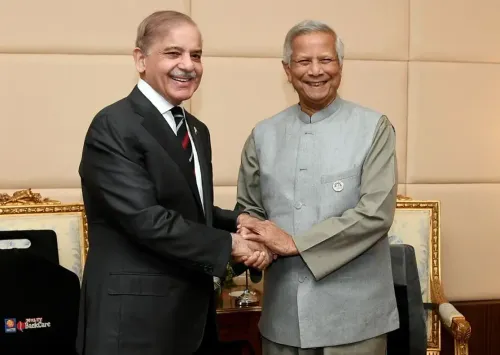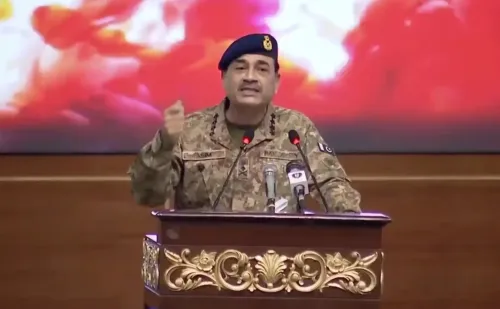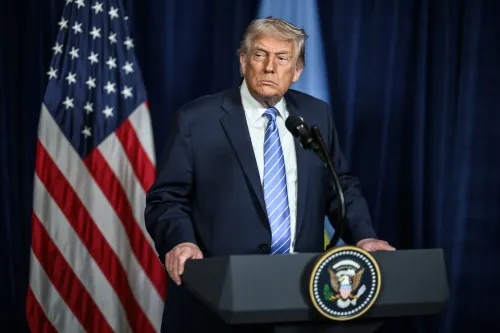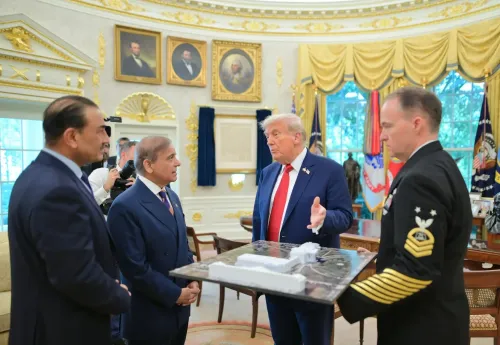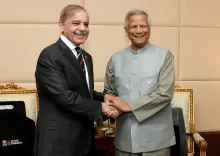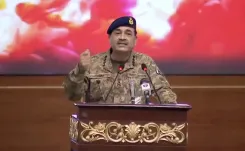Why Did Canada Summon the Israeli Ambassador Over Warning Shots?
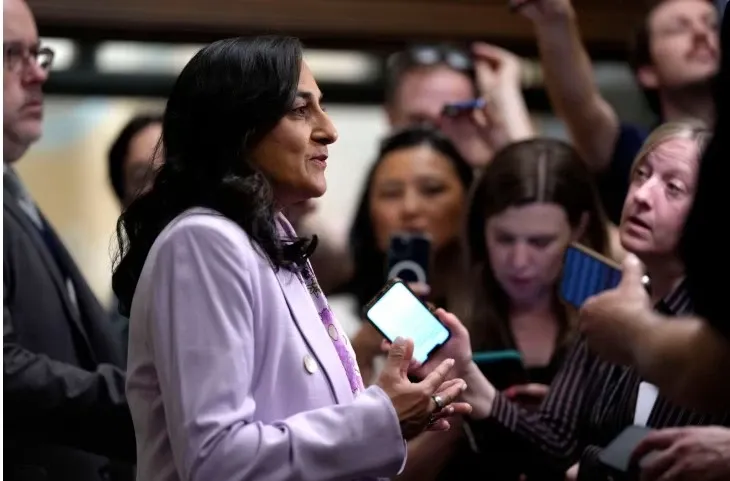
Synopsis
Key Takeaways
- Canada is taking diplomatic measures following IDF warning shots.
- Four Canadians were part of the affected delegation.
- Prime Minister Carney has called for accountability.
- International leaders are threatening sanctions against Israel.
- The humanitarian crisis in Gaza is worsening.
Ottawa, May 22 (NationPress) Canadian Foreign Minister Anita Anand announced her decision to summon the Israeli ambassador following the Israel Defense Forces (IDF) firing of warning shots during a diplomatic tour in the West Bank.
On Wednesday, Anand confirmed that four members of Canada's delegation were present when the IDF discharged shots.
She expressed relief on social media after speaking with Canada's Head of Mission in Ramallah regarding the safety of the Canadian team.
"I have instructed my officials to summon Israel's Ambassador to express Canada's serious concerns. We demand a thorough investigation and accountability," Anand stated.
The IDF explained that the tour group strayed from its sanctioned path, prompting soldiers to fire warning shots without causing any injuries.
This week, Canadian Prime Minister Mark Carney, along with British Prime Minister Keir Starmer and French President Emmanuel Macron, issued a joint statement threatening targeted sanctions on Israel due to its renewed military actions in Gaza.
Prime Minister Carney condemned the IDF's actions as "totally unacceptable," highlighting the danger posed to the diplomatic delegation that included Canadians in the West Bank.
The federal government confirmed that four Canadian personnel were part of the tour in Jenin when the IDF fired in their vicinity, consisting of two Canadians and two local staff, as stated by Foreign Affairs Minister Anand's office.
"We expect a thorough investigation and an immediate explanation of the events. This is completely unacceptable and part of a series of troubling occurrences in the region," Carney declared during a press briefing in Ottawa.
The IDF issued a statement indicating that the tour group, which included representatives from various nations, had "deviated" from its approved route, leading to the warning shots being fired to redirect the delegation.
The IDF expressed regret for any inconvenience caused.
Anand's response aligns with other Foreign Ministers who have condemned the incident.
The letter from Western leaders came after Israeli Prime Minister Benjamin Netanyahu asserted that his country would maintain control over Gaza, despite increasing international pressure to ease a blockade on humanitarian aid that has left the region on the brink of famine.
Netanyahu criticized the joint statement on social media, labeling it a "significant reward for the genocidal attack on Israel on October 7," referring to the Hamas attack that sparked the ongoing conflict in Gaza.
Conservative Leader Pierre Poilievre also voiced criticism of Carney's joint statement.
"The Hamas terrorists have just thanked Mark Carney for his recent statement on Israel," he commented online.
"Threatening Israel with sanctions and 'further concrete actions' while a terrorist group holds their citizens hostage and continues to assault Israel is misguided," Poilievre insisted.
During his Wednesday news conference, Carney mentioned that he briefed US Vice President J.D. Vance about the statement during their meeting in Rome over the weekend.
When queried about potential actions Canada might undertake if Netanyahu's government does not alter its course, Carney provided limited details, asserting that the intent behind his statement with the UK and France was clear.
In a grim warning this week, the United Nations stated that 14,000 infants are at risk of acute malnutrition if food supplies at the border are not permitted to reach them in Gaza.
According to aid organizations, Israel began allowing several humanitarian trucks into Gaza on Wednesday, but workers have faced challenges delivering food and supplies to distribution points for Palestinians in need.


